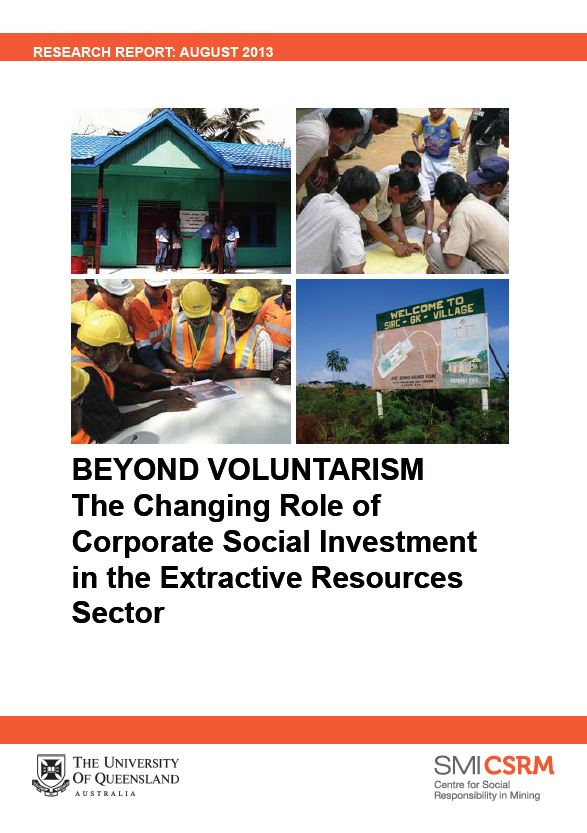Beyond voluntarism: the changing role of corporate social investment in the extractive resources sector
In the broadest sense, corporate social investments are initiatives undertaken, funded, or otherwise supported by companies, where the intended primary beneficiaries are communities or other external stakeholders. Examples include: donations and other contributions to civil society groups and organisations; direct funding and delivery of social programs; under-writing the cost of social infrastructure (e.g. schools, hospitals and housing), setting up foundations; and, payments to externally-controlled funds that are earmarked for social purposes (e.g. improving education and health outcomes). Historically, much of the social investment undertaken by companies has been quasi-philanthropic, but in recent years leading resource companies have begun to use these investments more strategically to mitigate social risk, protect their corporate social licence to operate, and address growing societal expectations.
Publisher: Centre for Social Responsibility in Mining
CITATION
McNab, K., Keenan, J., Brereton, D., Kim, J., Kunanayagam, R. and T. Blathwayt (2012). Beyond Voluntarism: The Changing Role of Corporate Social Investment in the Extractives Sector. Centre for Social Responsibility in Mining, The University of Queensland. Brisbane.

